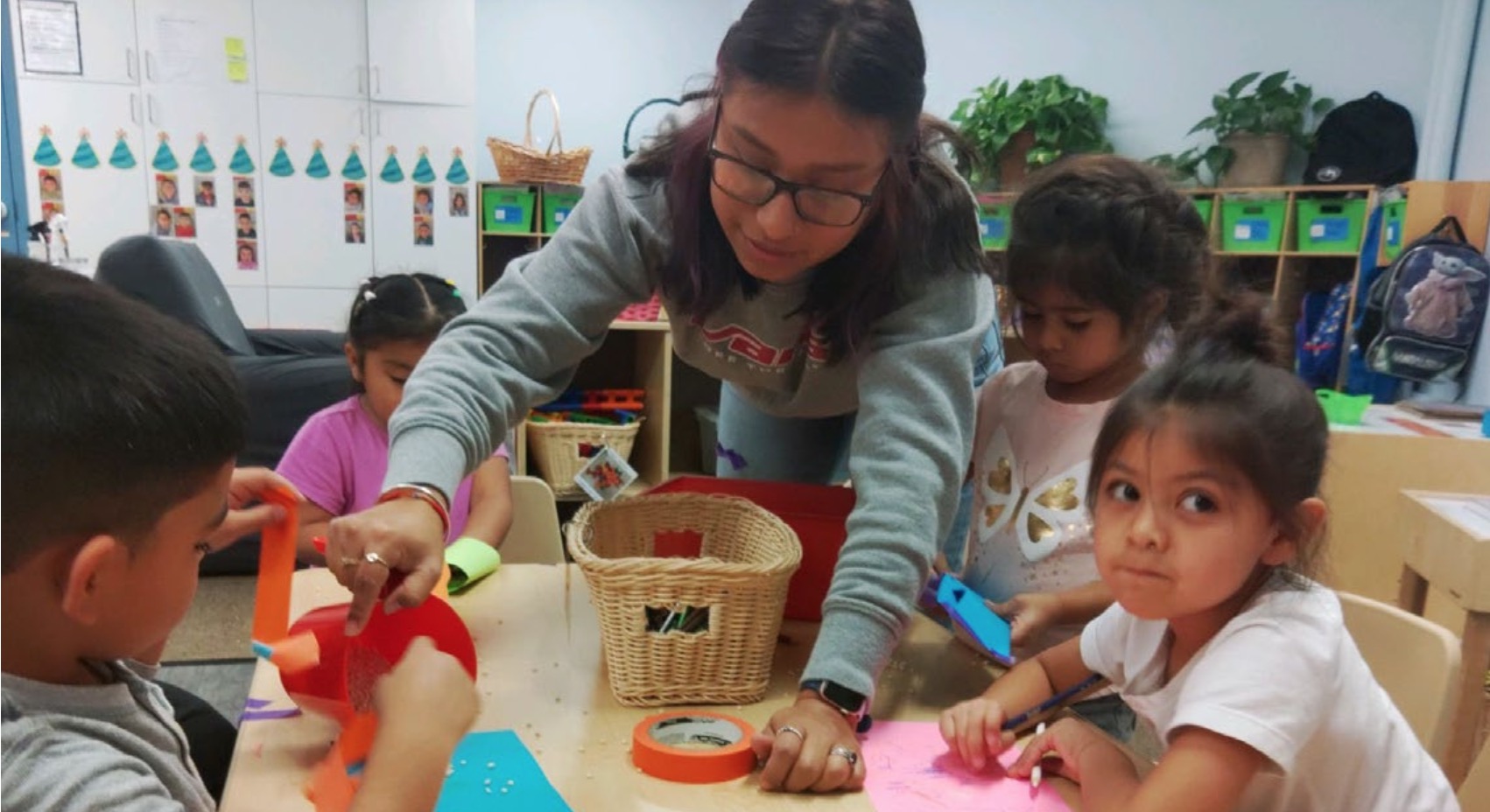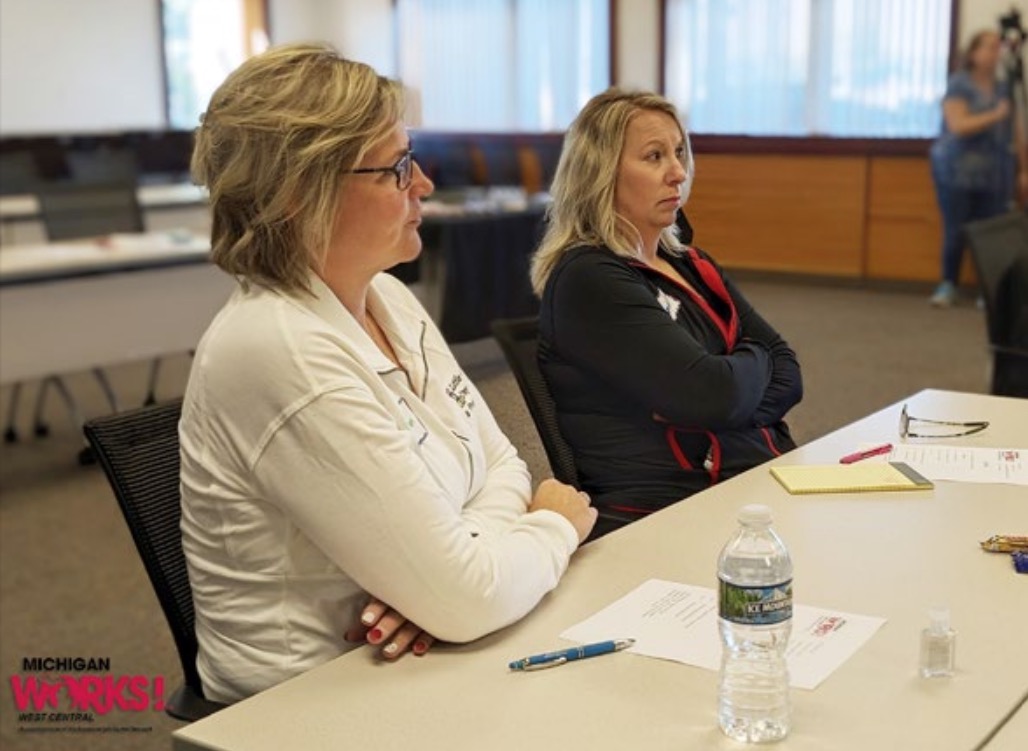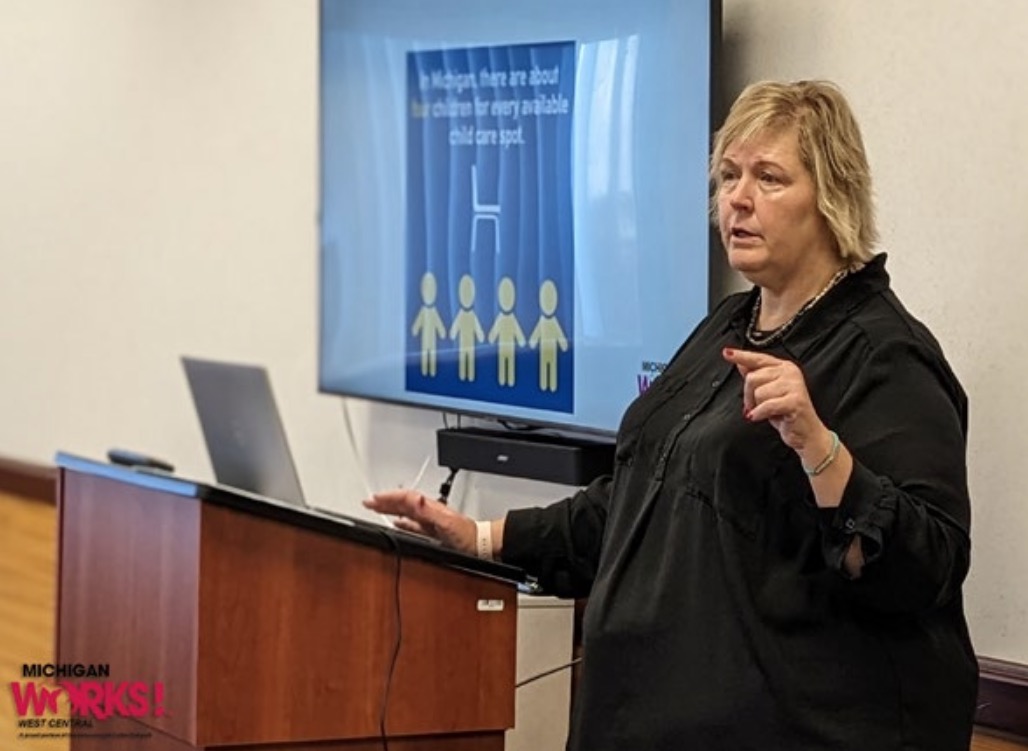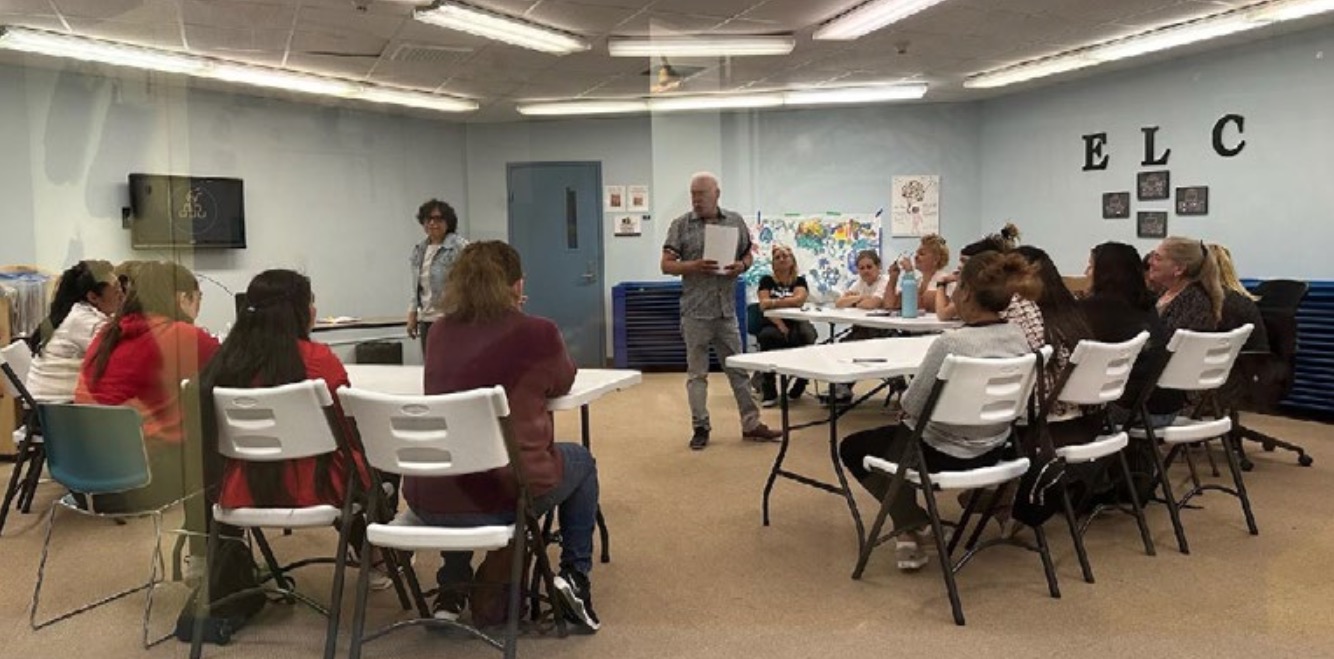Early Care and Education Registered Apprenticeships + Wages Pilot
Working to Make Child Care Jobs Good Jobs
Need
Despite significant investments in child care in recent years, MI's child care sector still leaves many families, businesses, and child care employers underserved. The child care workforce, predominantly composed of women (40% being women of color), faces persistent wage disparities and barriers to obtaining required credentials (Bank Street College of Education, 2019, & BLS, 2019). On average, Black female educators earn just 84 cents for every dollar earned by their white counterparts. Almost half of the child care workforce relies on public assistance, with 86% earning less than $15 per hour and only 15% receiving employer-sponsored health insurance. Despite requiring high levels of skills and education, early educators earn significantly less than those in comparable industries, highlighting the urgent need for child care wages to be more competitive and equitable. With barriers to credentialing further undercutting wage potential, the child care sector struggles to compete with other low barrier to entry professions.
MI needs child care jobs to be desirable jobs. We need on-ramps to get early educators and the kind of pay that makes people want to stay. Child care is—in fact—an industry… underdeveloped but full of possibility. That’s why we looked to other industries to borrow strategies.
Early Care and Education Registered Apprenticeships
Project

Our investments in registered apprenticeship pathways for early educators is a game changer for Michigan. Borrowed from sectors like manufacturing and construction, early care and education (ECE) registered apprenticeship programs (RAPs) bring more early educators into the industry, provide support to attain two nationally recognized credentials, and offer wrap-around services (like transportation and child care)—all while getting paid.
- The Innovation Fund partnered with Mi-LEAP, the Michigan Department of Labor and Economic Development (LEO), and regional Michigan Works! Agencies, the experts in apprenticeship programs, to design and scale Early Care and Education (ECE) Registered Apprenticeship Programs (RAP) across the state.
- Eight organizations (Michigan Works! Agencies and community-based organizations) received funding to design ECE RAPs for their community and seven additional organizations were funded to scale-up their existing ECE RAP programs to support more child care businesses and early educators.

Results
7 new ECE RAPs, for a total of 14 programs, serving 80 counties across Michigan
million
$2.0 million in additional funding secured from the US Department of Labor to scale-up newly registered programs from 2024-2026
95 child care employers with an active apprentice
215 early educators actively enrolled in an apprenticeship
5 organizations secured State Apprenticeship Expansion funds aimed specifically to sustain and expand ECE RAPs
ECE Registered Apprenticeship Programs: Removing Barriers for Educators + Meeting Employer Needs
ECE Registered Apprenticeship Programs (RAPs) create supportive on-ramps and career pathways for people who want to make a difference as an early educator. Steepletown Neighborhood Services, the ECE RAP sponsoring agency in the Grand Rapids area, has registered more than 50 new apprentices as early child educators. Part of Steepletown’s innovative recruitment approach is to offer pre-apprenticeship training, one of the newest tools at LEO, called the Michigan Apprenticeship Readiness Certificate, or MARC credential. This pre-apprenticeship program supports people who are new to the ECE sector to land a job in the classroom and begin their registered apprenticeship. So far, five Spanish-speaking adults who completed the MARC credential last fall were hired by the Grand Rapids Public Schools to work as GSRP Associates and are now actively completing their apprenticeship program. Most recently, an additional 21 Spanish-speaking adults completed the MARC credential and are now seeking employment as early child educators so they can begin their apprenticeship training in August.
“The apprenticeship training program gave me the opportunity to step into a job that I love. Teaching has always been one of my top two choices for a career and this gave me a great way to get started.”
— Abi Parrada, GSRP Teacher Assistant, Early Learning Center, Grand Rapids, MI
Partnerships with Michigan Works! Agencies help build Registered Apprenticeship Programs (RAPs) that meet Child Care Employer and Community Needs. Michigan Works! West Central co-designed their apprenticeship program through a collaborative partnership with six local child care employers. Together, they worked to build a program that met the needs of the employers and their community at large. Julie Sanders, Apprenticeship Specialist from Michigan Works! West Central, explains: “Right now, the biggest barrier is that there four children to every one available spot available in child care. The whole goal is to create more [child care] spots [...] so families don’t have [finding] child care as a burden to them.”
This ECE RAP also supports child care employers to retain quality early childhood professionals by providing on-the-job training and instruction at no cost to the apprentice. Amber Hutchinson, director of Kiddies Klubhouse LLC. in Reed City and a key partner in building the RAP, shared, “the apprenticeship program that Michigan Works! [West Central] is creating is great for our businesses as its helping to provide opportunities for our employees that we may not be able to help with due to the cost. It helps us, as a mom-and-pop shop[...] to be able to continue to provide resources for our employees.”



Wages Pilot
Project

ECIC co-led an early care and education wages taskforce with TalentFirst, child care employers, parents, and other key partners, to develop the first of its kind ECE wage scale. The scale has been disseminated throughout MI, and the Fund is conducting a pilot of the scale, which will be complete in December 2024.
- Two early childhood centers—one in rural Michigan and one in Detroit—were selected for the 9-month pilot. The pilot is providing the funds these employers need to close the gap between what their businesses can afford to pay and what the wage scale indicates early educators should be paid, given their credentials and years of experience. By closing the salary gap for employers, the pilot hopes to show an impact on early educator recruitment and retention.

“Earning the wages my staff deserve makes them more accountable and makes them feel valued and appreciated. This makes for happier staff and a less stressful life for a business owner.”
— Rachel McDonough-Grogan, Northern Explorers Child Development Center
Results
The pilot program is already showing the benefits of increased wages for child care employers and their early educators.
Both pilot sites have been able to retain and recruit additional staff
More staff are pursuing continuing education to improve their credentials and pay
Early educators and employers are helping to evaluate the pilot and their testimonials to date are very positive